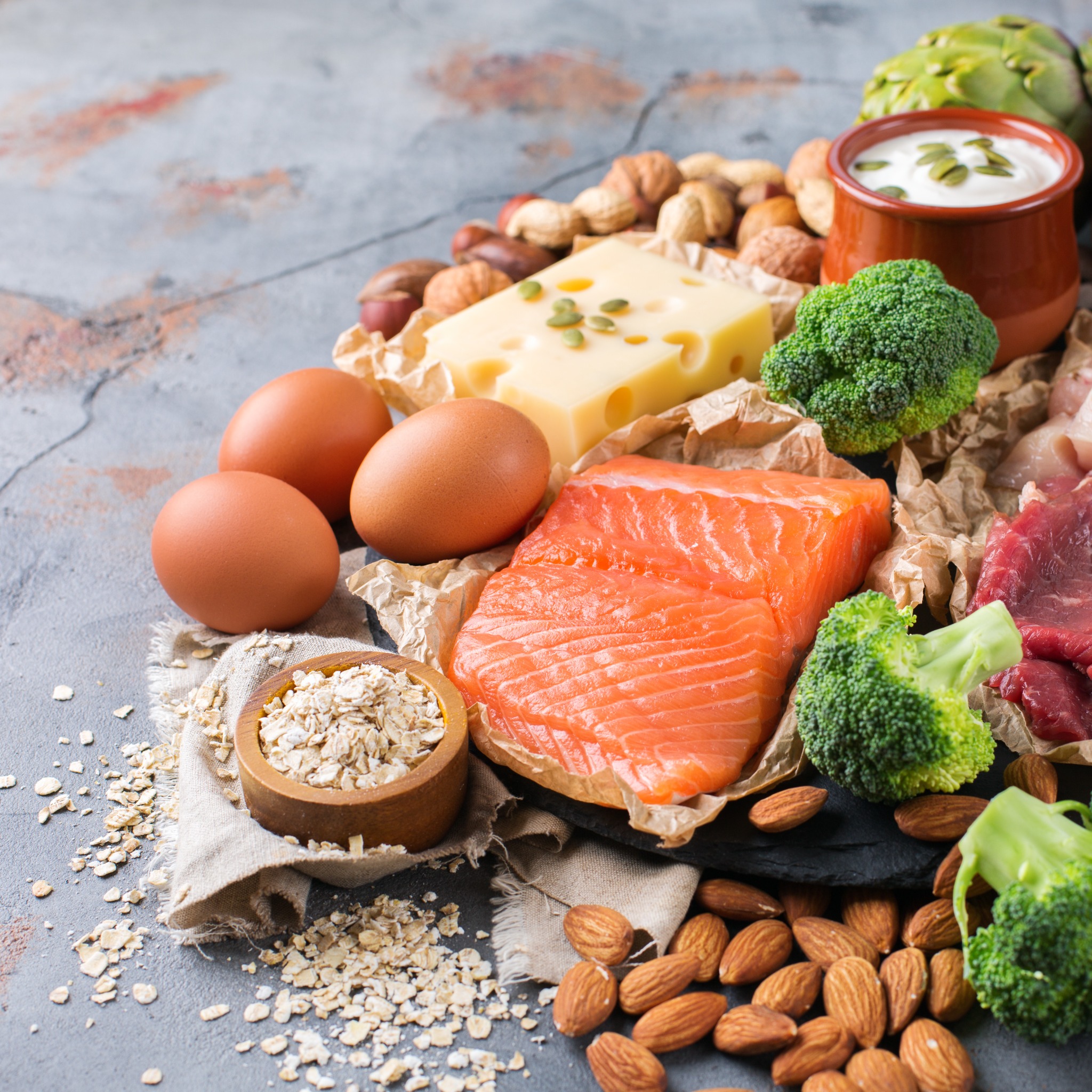What are the benefits of protein? How important is it to eat adequate protein? Of the three essential macronutrients the body needs to function (protein, fat, and carbohydrates), protein is often thought of as the golden child. It is prominent in many diets and rarely forbidden or vilified like its counterparts.
Indeed, protein is deserving of this reputation — it’s important to every cell in the body, used to build and repair tissues, and make enzymes and hormones that regulate metabolism. However, it’s also helpful to understand exactly what protein does in the body and how much you should regularly consume.
WHAT ARE THE BENEFITS OF PROTEIN?
In addition to helping every part of the body from brain health to supporting the immune system, protein also promotes satiety after meals and slows down digestion, making it an important appetite and blood sugar regulator.
Proteins consist of amino acids, which form long chains and have unique functions in the body. Although there are 20 amino acids in total, the body can only make 11.
The other nine must be obtained by diet, and are called essential amino acids. Animal products, such as fish, chicken, eggs, dairy products, and meat are considered “complete” proteins because they contain all nine essential amino acids.
So long as you eat a variety of healthy plant foods, such as beans, whole grains, nuts, and seeds, you will also get all of the nine essential amino acids.
The idea that vegetarians and vegans have to worry about pairing certain foods in the same meal to consume enough complete protein has been disproved by research.
HOW WE DIGEST PROTEIN
Protein digestion begins in the stomach, where it is broken down by stomach acids and enzymes called proteases, and this continues in the small intestine, where additional enzymes break proteins into individual amino acids.
These amino acids are absorbed through the intestinal wall and make their way into the bloodstream, going where they are needed throughout the body.
HOW MUCH PROTEIN DO YOU NEED?
A good rule of thumb is aiming to consume roughly 15–20% of your daily calories from protein, but it can vary depending on your individual lifestyles. For example, someone engaged in more vigorous activity, like heavy weightlifting, might need more than someone who primarily walks for exercise.
According to research, the body can absorb 25–35 grams of protein per meal. Thus, it’s more beneficial to spread out your protein intake throughout the day rather than trying to consume a majority at one meal.
Moreover, it’s possible to have too much of a good thing, and more isn’t always better. Unlike excess carbohydrates, which get stored away as glycogen in the liver and muscle cells for later use, excess protein is stored as fat. If the body has enough amino acids, the extras are converted to waste and flushed down the toilet.
To get a sense of how much protein you’re consuming, you can track your intake with an app like MyFitnessPal. If you need more guidance, consider reaching out to a registered dietitian or healthcare professional who can help provide individualized recommendations.
WHAT ARE THE BEST SOURCES OF PROTEIN
Including a variety of quality animal products and plant foods in your diet is the best way to ensure your body is getting enough protein. Examples of top protein sources include fish, like salmon, eggs, chicken, Greek yogurt, nuts and seeds, beans, lentils, tofu and whole grains.
THE BOTTOM LINE ON THE BENEFITS OF PROTEIN
Protein has many crucial jobs throughout the body, which is why you should include a variety of whole-food sources in your diet. It’s also important to consume enough carbohydrates and fat so that protein is free to focus on its primary function.
With too little fat or carbohydrates, the protein could be called on to supply the body with energy. Not only does this take away from its important jobs, but it can result in loss of lean muscle tissue.
Aim for well-balanced meals that include all three macros. For example, a piece of salmon with roasted potatoes and broccoli, tofu stir-fry with brown rice and vegetables, or a Greek yogurt bowl with granola and berries are all delicious, nutrient-dense combinations.
Click here to read more about the benefits of protein.






